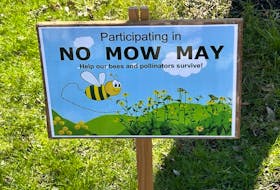It might not quite rank as a born-again declaration, but Stephen McNeil’s indication that he aims to be collaborative carries some of the hallmarks.
Not everyone would agree that Nova Scotia’s premier has shown much of a tendency to collaborate on tough issues recently, or in the past year. You might even say the current government has gained a degree of infamy for not being open to compromise or collaboration.
But there’s room for hope.
On both the health and education fronts, the premier has indicated the possibility for more openness, perhaps some compromise.
Following a strike vote last week by the province’s teachers, McNeil has had discussions with the Nova Scotia Teachers Union about the Avis Glaze report, and whether there’s room to move on some of the recommendations.
That’s a good start, as long as two-way discussion continues, and the thoughts of those with a better grasp on what’s lacking in classrooms are heeded. That’s what the teachers were getting at in the first place – the prospect of a sweeping adoption of recommendations without discussion, and some of them, the teachers union claims, far from showing any merit based on evidence.
And then this week, the premier told CBC News that he’ll consider the possibility of making meetings of the Nova Scotia Health Authority open to the public, because he’s a collaborative guy. Much to the chagrin of many in this province since the government scrapped regional health boards in favour of a centralized body, the meetings have been held in secret. Opening them will be subject to future discussion with, presumably, health board officials, as opposed to the public.
Having meetings open to the public – and the media – should be a pretty basic concept. Health care, after all, is a service that comes to the public at a great cost to the public, yet the public footing that bill gets stonewalled when it asks about shortcomings, about shortages of health professionals or gaps in service.
Not only have meetings been closed. Calls from news media with questions on a topic aren’t returned.
When you have a public service, funded by the public, the principle is that it needs to be accountable.
And with the education system, again, things need to change. That point was made again and again last year when the teachers took job action. After much disruption to school activities during work to rule, and with an election in the offing months later, the provincial Liberals were going to make improvements in classrooms across the province a priority.
Except teachers aren’t seeing the Glaze report as tackling the classroom issues, but rather concentrating on administrative and bureaucratic initiatives.
We know that a government can’t simply cave in to demands. We also know that in many cases they have to make decisions that will be unpopular in some circles.
But listening to those with an insight into what’s missing and what’s needed is not only a learning exercise, it’s the way a government can gain respect and confidence from people, by being collaborative.








